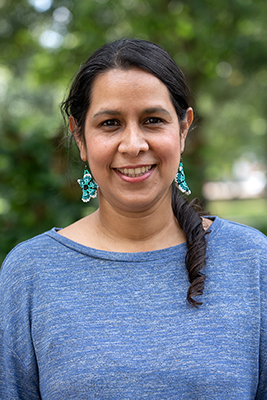Faculty Profile
Amalia Pesantes Villa
Assistant Professor of Anthropology (2020)Contact Information
on sabbatical 2025-26
Denny Hall
717-254-8118
Bio
I received my Ph.D. in Medical Anthropology and M.P.H. from the University of Pittsburgh in 2014. I also have a Master's degree in International Development from Clark University. My research looks at health inequalities among vulnerable populations. I study the challenges faced by Indigenous people to access culturally-appropriate health care and to have their medical traditions recognized and incorporated into state health services. I also conduct research about the experiences and health needs of underserved populations with chronic conditions. I am especially interested in research that can contribute to designing better strategies to improve healthcare access for people with diabetes and hypertension in low and middle income countries.
Education
- B.A., Pontificia Universidad Católica del Perú, 2000
- M.A., Clark University, 2005
- M.P.H., University of Pittsburgh, 2014
- Ph.D., 2014
